|
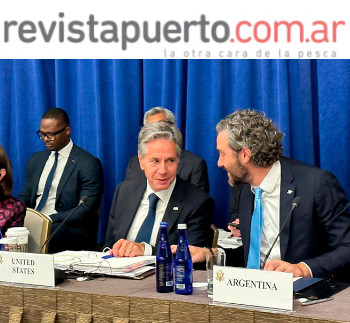
Image: Revista Puerto / FIS
´Mile 201´ is not on the Argentine government's agenda
 ARGENTINA
ARGENTINA
Thursday, September 21, 2023, 01:00 (GMT + 9)
The chancellor did not mention fishing at Mile 201
This scourge that directly affects the health of fish populations in the Argentine Sea did not have space in Santiago Cafiero's presentation at the launch of the Association for Atlantic Cooperation that took place this week at the UN General Assembly in New York.
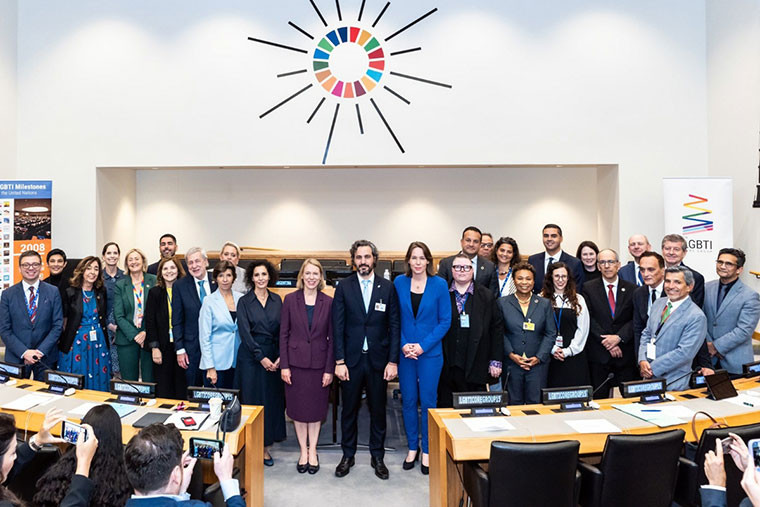
Source Revista Puerto
When thinking about Atlantic cooperation, there is no issue that has more relevance for Argentina than what is represented by the uncontrolled fishing of hundreds of boats at mile 201 and which directly affects the health of the fish populations in our territorial sea. Despite this, Foreign Minister Santiago Cafiero did not make a single mention of it at the launch of the Association for Atlantic Cooperation and its Action Plan at the UN General Assembly.
 Cafiero stated that “as a bi-oceanic and bi-continental country, we highlight the value of this initiative, which, through science, cooperation and technology transfer, will allow us to advance actions to improve the conservation and sustainable use of the oceans. With this joint effort, the international community must support the consolidation of the Atlantic as a prosperous, peaceful, open and cooperative area,” the Foreign Ministry reported. Cafiero stated that “as a bi-oceanic and bi-continental country, we highlight the value of this initiative, which, through science, cooperation and technology transfer, will allow us to advance actions to improve the conservation and sustainable use of the oceans. With this joint effort, the international community must support the consolidation of the Atlantic as a prosperous, peaceful, open and cooperative area,” the Foreign Ministry reported.
Far from relating these valuable initiatives to the uncontrolled fishing carried out in the South Atlantic by Chinese vessels, especially Taiwanese but also Spanish, the Minister of Foreign Affairs took the space to talk, as usual, about the Malvinas conflict.
"Our country cannot fail to mention the issue of the Malvinas Islands, characterized by the United Nations as a special and particular case of decolonization that involves a sovereignty dispute between Argentina and the United Kingdom," he said, repeating the speech of the reaffirmation of our legitimate rights.
.jpg)
Source: Stockfile FIS
The Latin American Foundation for Fisheries Sustainability (FULASP), in a recent report, placed Argentina in third place among the countries most affected by the negative effects of illegal fishing globally and first in Latin America. The analysis is carried out on the basis of alleged monetary losses that fishing by foreign vessels at mile 201 would generate for the national industry. Although the precision of this type of data can be debated, there is much more specific data, disclosed by researchers from national scientific organizations that are forceful enough for the Chancellor to take the issue with the seriousness it deserves.
.jpg) <-- Source: Stockfile FIS <-- Source: Stockfile FIS
Fishing in Mile 201 involves several species such as the hubbsi hake managed in Argentina by a management plan that includes permanent closures and controls on juvenile fishing in addition to a maximum catch. The Spanish fleet also usually goes after pollock, a resource on which there are restrictive measures for the national fleet due to its delicate biological state. And fundamentally, the Chinese fleet exploits illex squid with hundreds of vessels that operate for months on two important stocks.
Having management measures, controls of all kinds and research studies on these resources is not enough to guarantee their sustainability because at Mile 201 the fishing carried out does not have any type of control, closed periods are not respected. nor escape to guarantee its reproduction, nor the fishing of juvenile specimens. The consequences for resources can be serious, they are undoubtedly serious for a species as sensitive as the pollock and also for the squid, as has already been confirmed in these pages by the scientist in charge of the INIDEP Cephalopods Program.
In the 2022 final evaluation report on squid, it is inferred that with 400 vessels the foreign fleet captured 140 thousand tons; However, these figures are underestimated due to lack of information. “We use a capture per unit of effort based on our knowledge, on what we hear and on what we receive, because that is the serious problem we have: we do not have access to the real data of that area,” Marcela Ivanovic told REVISTA. PORT when talking about the impact of the foreign fleet on the resource and added that “it is possible that we have underestimates, because it is the best we can do with the data we have.”
.jpg) When asked at the time about the way in which the information could be improved, the researcher pointed out that “at Mile 201 there is free and indiscriminate fishing for this resource and also for others. It is something unsustainable, in each of our reports we put the final conclusion that it is not good for this resource or any other resource. It is not possible to have a resource without management, which is what is happening with the Argentine squid. We should try to get some type of agreement to know what is happening there, what is being caught, what real effort is being applied to be able to implement some model that is close to a real type of management, because the stocks are the same. “That would be ideal.” When asked at the time about the way in which the information could be improved, the researcher pointed out that “at Mile 201 there is free and indiscriminate fishing for this resource and also for others. It is something unsustainable, in each of our reports we put the final conclusion that it is not good for this resource or any other resource. It is not possible to have a resource without management, which is what is happening with the Argentine squid. We should try to get some type of agreement to know what is happening there, what is being caught, what real effort is being applied to be able to implement some model that is close to a real type of management, because the stocks are the same. “That would be ideal.”
If there was a suitable moment to expose this situation and request help from the international community to find a solution, it was the launch of the Partnership for Atlantic Cooperation and its Action Plan at the UN General Assembly. But Cafiero does not listen to scientists, nor to businessmen in the fishing sector, nor to non-governmental organizations, he travels with the Malvinas speech everywhere and it is the only thing he is capable of mentioning. Although Argentina always manages to be a little worse, it is difficult to imagine that we could be worse represented in the future in international matters.
Source: Revista Puerto (Traslated from the original in Spanish)
Related News:
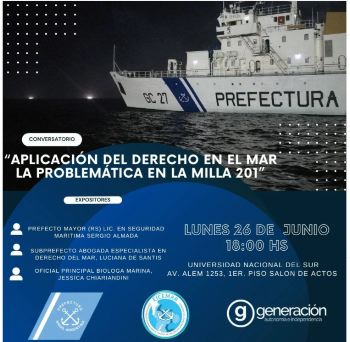
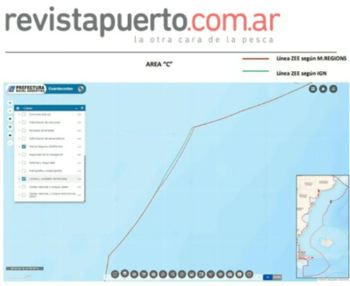

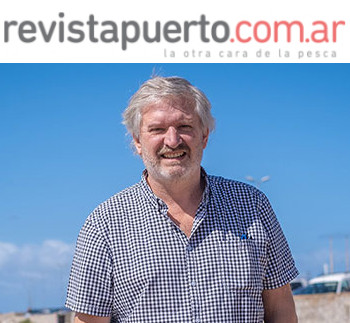

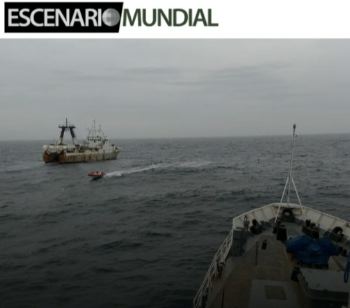

.jpg)
.jpg)
.jpg)

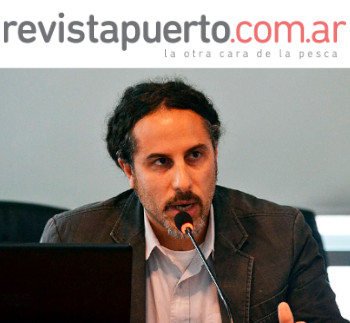
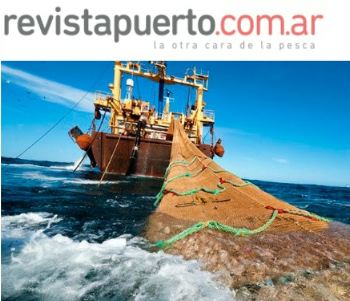

.jpg)
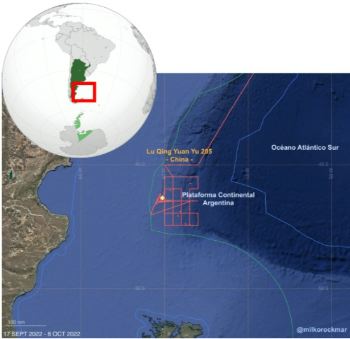
editorial@seafood.media
www.seafood.media
|



